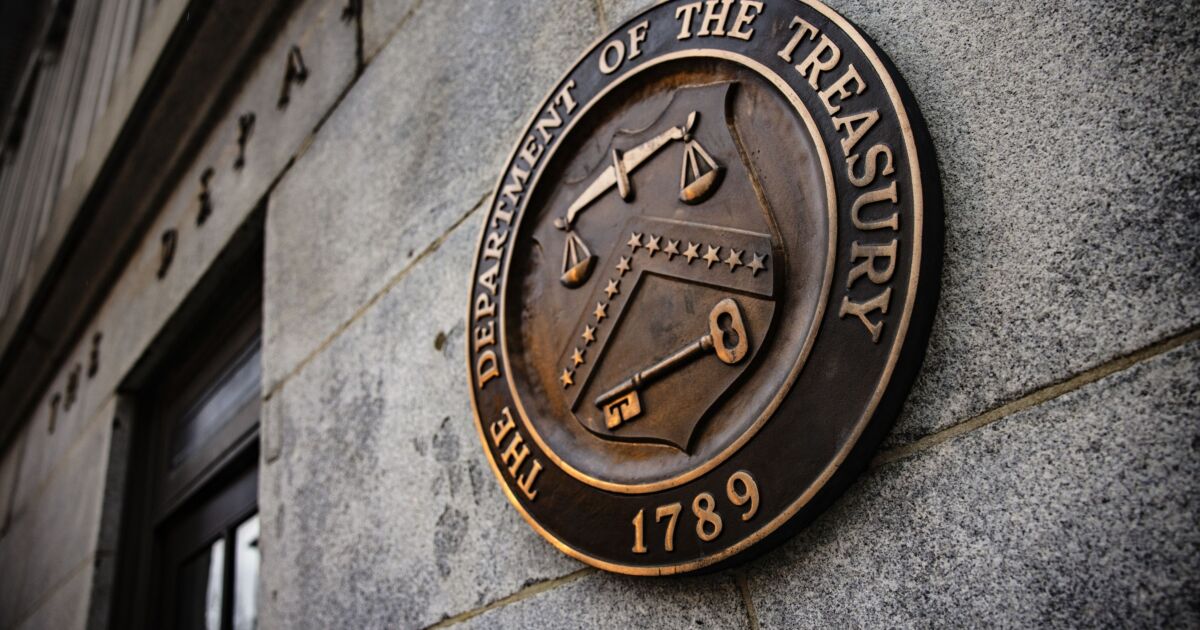The Treasury Department’s Financial Crimes Enforcement Network hopes to deter money laundering in the residential real estate industry with a newly proposed rule.
On Wednesday, FinCEN issued a
“Illicit actors are exploiting the U.S. residential real estate market to launder and hide the proceeds of serious crimes with anonymity, while law-abiding Americans bear the cost of inflated housing prices,” said FinCEN Director Andrea Gacki in a statement. “Today marks an important step toward not only curbing abuse of the U.S. residential real estate sector, but safeguarding our economic and national security.”
The proposed rule details the circumstances in which a report would be filed; who would file such a report; what information would need to be provided, including information about the beneficial owners of the legal entities and trusts; and when a report about the transaction would be due. Data from the reports would help the Treasury Department, law enforcement and homeland security officials address vulnerabilities that leave the U.S. residential real estate market exposed to abuse by illicit actors.
Samuel Corum/Bloomberg
Under the proposed rule, people involved in real estate closings and settlements would continue to be exempt from the anti-money laundering compliance program requirements of the Bank Secrecy Act.
FinCEN is asking the public to submit written comments in response to the proposed rule. Comments will be accepted for 60 days following publication in the Federal Register.
A fact sheet on the proposed rule can be found on
FinCEN noted that it builds on its long-running Residential Real Estate Geographic Targeting Order program, which requires title insurance companies to file reports identifying the beneficial owners of legal entities that make certain non-financed purchases of residential real estate in select jurisdictions in the United States. If adopted, the proposed rule would build on the Residential Real Estate GTO program and replace it with nationwide reporting requirements.
Transparency advocates applauded the move.
“This draft rule sends a clear message that the U.S. plans to close off options for criminals looking to hide their ill-gotten gains in our real estate markets,” said Ian Gary, executive director of the Financial Accountability and Corporate Transparency Coalition, in a statement. “It is imperative that Treasury now finalize strong, permanent rules to prevent the misuse of U.S. residential and commercial real estate by foreign and domestic criminals, sanctioned Russian oligarchs, drug traffickers, sponsors of international terrorism, and other bad actors.”
FinCEN’s effort builds on the effort to collect
“With the launch of the nation’s first federal beneficial ownership registry in January, Treasury took a massive first step toward dismantling the systems of financial secrecy that have for so long made the U.S. the world’s foremost destination for dirty money,” stated Gary Kalman, executive director of Transparency International U.S., a FACT Coalition member. “By finalizing strong anti-money laundering safeguards for the multitrillion-dollar real estate sector, the Biden administration can live up to its commitments and catapult the United States from being a laggard to a leader in the global fight against corruption and illicit finance.”
They pointed out that the roughly $50 trillion U.S. real estate sector has long been a favorite hiding place for the proceeds of corruption, drug trafficking and other international crimes, according to a
Credit: Source link











